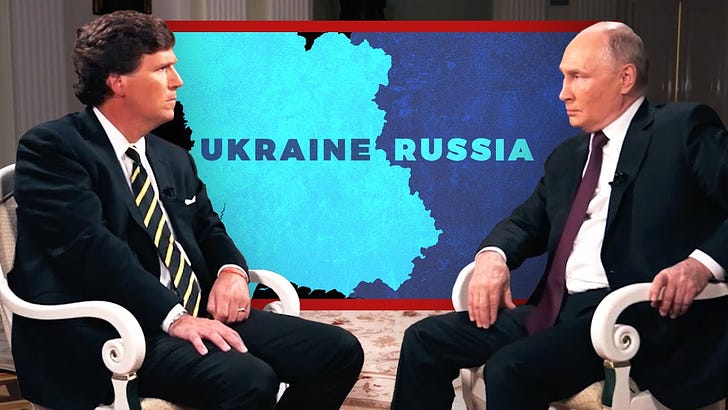Tucker Carlson's Putin Interview Goes Viral, MSM Furious
Carlson gives Putin 2 hours uninterrupted; Putin reveals Clinton rebuffed Russia's NATO bid
On February 8, 2024, journalist Tucker Carlson, published a two-hour interview with Vladimir Putin, which happened on February 6, 2024. That video, which debuted on X.com has garnered over 200 millio…
Keep reading with a 7-day free trial
Subscribe to Karl Dickey to keep reading this post and get 7 days of free access to the full post archives.



